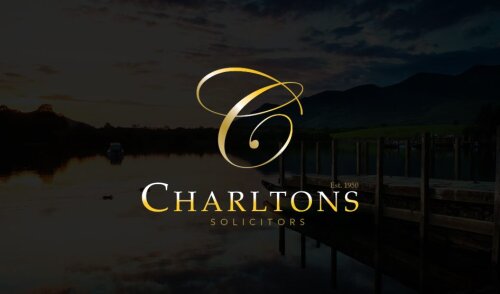Best Landlord & Tenant Lawyers in Stoke-on-Trent
Share your needs with us, get contacted by law firms.
Free. Takes 2 min.
Free Guide to Hiring a Real Estate Lawyer
List of the best lawyers in Stoke-on-Trent, United Kingdom
About Landlord & Tenant Law in Stoke-on-Trent, United Kingdom
Landlord and tenant law in Stoke-on-Trent, as in the rest of England and Wales, is governed by a combination of national statutes and local regulations. This area of law covers all aspects of renting property, including the rights and responsibilities of both landlords and tenants. In Stoke-on-Trent, the market includes a wide range of private, social, and student rentals, making understanding your legal position essential whether you own or rent a property. Key legislation includes the Housing Act 1988, Landlord and Tenant Act 1985, and Protection from Eviction Act 1977. Local authorities are also active in enforcing housing standards and tenancy protection within the city.
Why You May Need a Lawyer
There are several situations where legal assistance can be crucial in landlord and tenant matters:
- Disputes over unpaid rent or deposits
- Allegations of harassment or illegal eviction
- Issues with disrepair and housing standards
- Drafting or reviewing tenancy agreements
- Defending possession proceedings or eviction
- Problems concerning notice periods and ending of tenancies
- Residents living in houses in multiple occupation (HMOs)
- Uncertainty regarding new laws or local licensing requirements
A specialist lawyer can offer tailored advice, represent you in negotiations or court, and help safeguard your rights under complex and evolving housing laws.
Local Laws Overview
While national laws form the backbone of landlord and tenant rights in Stoke-on-Trent, the council also enforces local rules and initiatives aimed at improving housing standards and tenant protection:
- Licensing Schemes - Some areas require landlords to possess a license, especially for HMOs. Failure to have the correct license can lead to heavy penalties.
- Selective Licensing - In certain neighborhoods with persistent issues, all private landlords may need to meet additional requirements.
- Deposit Protection - Deposits must be secured in an approved government scheme. Landlords must provide prescribed information to tenants within 30 days.
- Minimum Standards - Properties must meet the Housing Health and Safety Rating System (HHSRS) criteria, ensuring safe, habitable accommodation.
- Eviction Protocols - The council provides specific guidance around eviction, especially in regard to illegal eviction or harassment.
- Energy Efficiency - There are minimum energy efficiency standards that all rented properties must meet.
The council regularly inspects properties and encourages tenants to report breaches, especially relating to safety, disrepair, or licensing.
Frequently Asked Questions
What is the minimum notice period a landlord must give to end an assured shorthold tenancy?
Generally, landlords must provide at least two months' notice for a Section 21 eviction, but notice periods can vary depending on the grounds for eviction and recent changes in the law.
Does my landlord have to protect my deposit?
Yes, all deposits taken for an assured shorthold tenancy must be protected in a government-approved scheme. Landlords must also give you prescribed information about where your deposit is held.
What should I do if my landlord will not carry out repairs?
Inform your landlord in writing about the disrepair. If repairs are not made within a reasonable time, you can contact Stoke-on-Trent City Council's housing standards team for advice and enforcement.
Can a landlord enter the property without my permission?
A landlord must give at least 24 hours' notice before entering the property, except in emergencies. Tenants have the right to quiet enjoyment of their home.
What happens if I cannot pay my rent?
Communicate with your landlord as soon as possible. If the issue does not resolve, you may be at risk of eviction, but you have the right to proper notice and a court order before eviction can occur.
How can I end my tenancy?
Check your tenancy agreement for break clauses or notice requirements. Usually, you must provide written notice (at least one month for periodic tenancies).
What are my rights if I am being evicted?
You cannot be forced out without proper notice and a court order. Illegal eviction is a criminal offence and you should seek immediate legal advice if threatened with lockout or harassment.
Is my landlord responsible for safety checks?
Yes, landlords are legally required to ensure annual gas safety checks, provide electrical safety reports, and ensure fire safety measures are in place.
Are there specific rules for student accommodation?
Student landlords must meet the same standards as other landlords and, if operating an HMO, must comply with licensing and additional regulations to ensure safety.
Can I challenge my rent or request a rent reduction?
Tenants may challenge excessive rent increases, especially during a fixed-term contract, by applying to a tribunal. Discuss any concerns with your landlord and seek advice early.
Additional Resources
Here are some helpful resources and organizations for landlord and tenant issues in Stoke-on-Trent:
- Stoke-on-Trent City Council Housing Standards Service
- Citizens Advice Stoke-on-Trent
- Shelter (nationwide housing charity)
- Tenancy Deposit Schemes (such as DPS, TDS, MyDeposits)
- The Property Ombudsman
- Ministry of Justice - Possession Claims Online Service
Next Steps
If you are encountering issues as a landlord or tenant in Stoke-on-Trent, it is advisable to:
- Review your tenancy agreement thoroughly.
- Document all communications and issues in writing.
- Contact relevant authorities or organizations for initial guidance.
- Consult a solicitor experienced in landlord and tenant law for tailored legal advice.
- If urgent (such as illegal eviction or unsafe conditions), seek immediate assistance from the council or the police.
Taking prompt action and seeking the right advice can protect your rights and help resolve disputes effectively.
Lawzana helps you find the best lawyers and law firms in Stoke-on-Trent through a curated and pre-screened list of qualified legal professionals. Our platform offers rankings and detailed profiles of attorneys and law firms, allowing you to compare based on practice areas, including Landlord & Tenant, experience, and client feedback.
Each profile includes a description of the firm's areas of practice, client reviews, team members and partners, year of establishment, spoken languages, office locations, contact information, social media presence, and any published articles or resources. Most firms on our platform speak English and are experienced in both local and international legal matters.
Get a quote from top-rated law firms in Stoke-on-Trent, United Kingdom — quickly, securely, and without unnecessary hassle.
Disclaimer:
The information provided on this page is for general informational purposes only and does not constitute legal advice. While we strive to ensure the accuracy and relevance of the content, legal information may change over time, and interpretations of the law can vary. You should always consult with a qualified legal professional for advice specific to your situation.
We disclaim all liability for actions taken or not taken based on the content of this page. If you believe any information is incorrect or outdated, please contact us, and we will review and update it where appropriate.














